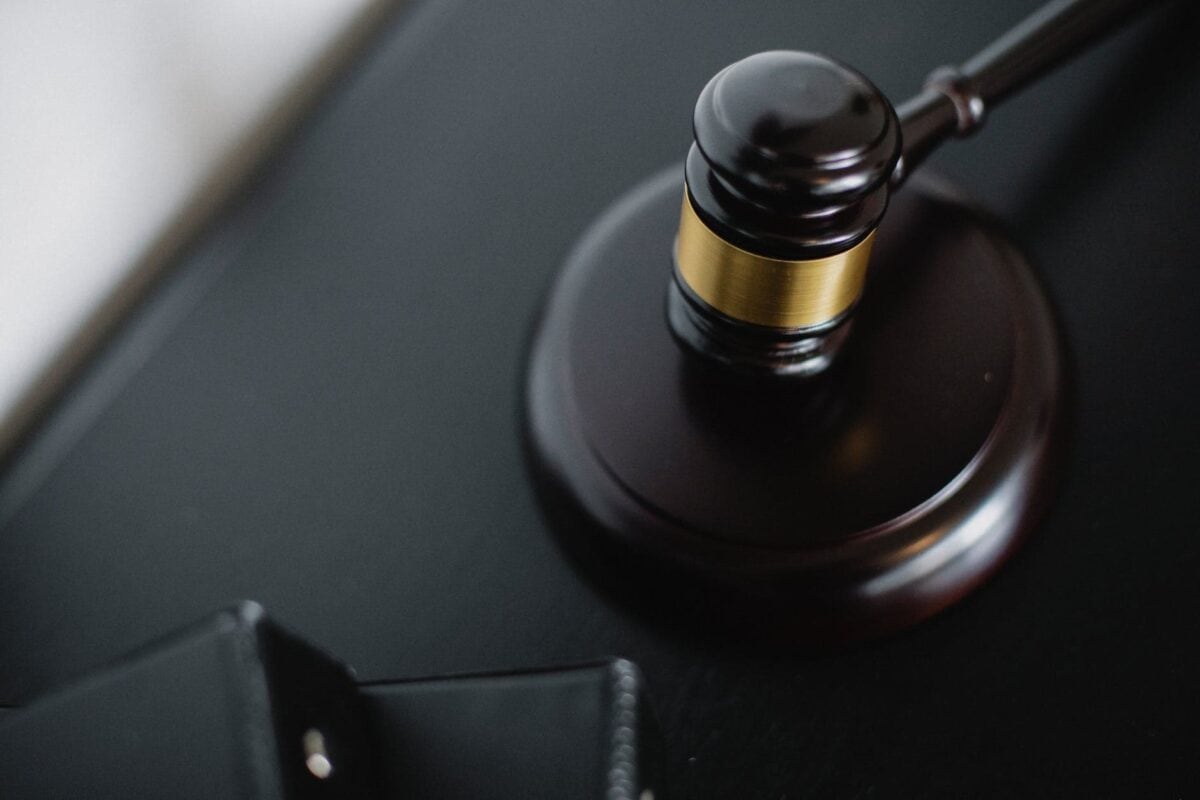March 7, 2022
Preparing for the Worst: What to Do (and Not to Do) When You are the Target of Legal Malpractice Litigation
For lawyers, goal number one is simple. We strive to be competent, diligent and well-prepared. We follow the Rules of Professional Conduct and take our ethical responsibilities seriously. We communicate with our clients, perform our conflict searches and document our engagements in writing. We use appropriate diary systems and follow risk-management protocols.
Lets face it: lawyering is hard. We deal with difficult and complex issues, changing laws, demanding and emotionally-invested clients, competing deadlines, unpredictable courts, staffing issues and, lets not forget, taking Johnny to his baseball tournament across six states for the fourth weekend in a row.
When others learn that I defend lawyers, I often get the same response: Oh, you must see some terrible things, or I bet there are a lot of bad lawyers out there. While that sentiment may ring true on occasion, the reality is that the vast majority of my clients are excellent lawyers, and I learn from each of them every day, as knowledgeable and competent professionals in their particular fields of practice.
Lawyers have a tough job, and they can find themselves in difficult situations for a variety of reasons. While it is critical to do what we can to avoid getting ourselves into those situations in the first place, it is equally as important to know what to do and not do should we ever find ourselves in the crosshairs of a legal malpractice lawsuit.
1. Give yourself a break.
For some of us, it is almost unfathomable to contemplate the possibility of being sued. We take it personally. We view it as an attack on our professionalism and competence. We think that it undermines the reputation we’ve worked so hard to attain. Bear in mind, however, that the American Bar Association reports that as many as 4 out of 5 lawyers get sued in their careers, and that doesn’t mean our profession consists of a bunch of bad apples. After all, professional liability coverage exists for a reason and, to my point above, lawyering is hard. Bottom line – getting sued does not make you a bad lawyer.
2. Do not mislead your client.
Pride, anxiety and stress can cause lawyers to make some very bad choices, the most damaging being the cover-up. For example, a lawyer misses a statute of limitations or a deadline of some sort, yet instead of advising the client of what occurred, the lawyer unable to face the shame of making a mistake continues to assure the client that everything is moving forward swimmingly. Meanwhile, the lawyer is frantically filing motions to undo the error, hoping in vain that it will all work out and the client will be none the wiser. This never works out for the lawyer.
What can start out as a simple case of negligence can quickly escalate when the lawyer is less than truthful with the client. To begin with, instead of being faced with a simple civil lawsuit, the lawyer will likely also be met with a disciplinary complaint to defend. The Rules of Professional Conduct impose a duty of candor to the client and require that we keep our clients informed about their matters, and that includes advising a current client if the lawyer believes he or she may have materially erred in the client’s representation. See, ABA Standing Committee on Ethics and Professional Responsibility Formal Opinion 481.
Beyond the ethical considerations, while a missed statute of limitations can generally be a straightforward claim to defend sounding in negligence, the less-than-forthright approach by the lawyer can lead to additional claims of breach of fiduciary duty, fraud and even the imposition of punitive damages (which may not be covered under your applicable LPL policy). As I recently heard from one legal malpractice plaintiffs lawyer, the money is not made on malpractice it’s made on the cover-up.
3. When a sticky issue arises, you have resources. Use them.
Too often, when lawyers find themselves in a difficult situation, they erroneously believe that they are on their own. In reality, there are multiple resources for lawyers to take advantage of when an issue arises, and doing so may make the difference in whether the lawyer is sued.
For example, many state bar associations have their own ethics hotlines for use by their members. Some insurance carriers have a claims assistance or repair hotline. And, if you are faced with a claim or even a potential claim, early reporting to your professional liability carrier may not only be mandatory, but greatly beneficial in undertaking claim mitigation efforts. Having retained counsel early can assist in navigating conflicts of interest or with other efforts to avoid a potential loss to the client before it is too late, and thus save the lawyer from a malpractice suit altogether.
4. Withdraw from the representation on the record.
This one sounds obvious. If the attorney-client relationship has terminated, and the litigation is still pending, the lawyer should withdraw from the record. As simplistic as it may sound, a surprising number of lawyers forget this basic step, the result being an open record leading to confusion as to the responsibility for matters occurring after the termination. If the attorney-client relationship has ended, take steps to protect the record by getting any necessary extensions for the client, document the disengagement and formally withdraw.
5. Cooperate with the client and successor counsel.
No one likes to be fired (and we like it even less when our bills are unpaid). Yet it is important not to fall into the trap of refusing to cooperate with either your client or your client’s successor counsel, particularly by holding your clients file hostage. The file belongs to the client, and the Rules of Professional Conduct require lawyers to take steps as reasonably practicable to protect a client’s interest, including the surrendering of papers and property to the client, to which the client is entitled.
Additionally, and this cannot be stressed enough, be sure to make a precise copy of what was furnished to the client upon your termination. Making a copy of the client file for your own use is imperative in the defense of any subsequent claim that may arise, and documenting what was actually furnished to the client will avoid any claim that key documents were not supplied.
6. Think long and hard before you sue to recover your fees.
As almost every lawyer’s professional liability insurance carrier and defense attorney knows, lawyers who sue to recover their legal fees are all too often met with the highly predictable legal malpractice-counterclaim. Filing a suit for fees may buy you a lawsuit you never bargained for and, oftentimes, the end result is a walk-away. Moreover, the terms of your professional liability policy may contain exclusions in the context of suits for fees, or you may have a significant deductible that exceeds any fees you could realistically recover. In the end, whether to sue a client to recover fees is a business decision, but one that should not be made without due consideration of the ramifications.
 Charlene S. Seibert is a shareholder in the Pittsburgh office of Marshall Dennehey Warner Coleman & Goggin. A member of the firms Lawyers Professional Liability Practice Group, she defends attorneys in legal malpractice actions covering a wide range of practice areas, including medical and dental malpractice, real estate and title insurance, estate and probate matters, divorce and support, complex business transactions and commercial litigation. She also represents attorneys sued for intentional conduct arising from their representation of a client, including claims of defamation, abuse of process and statutory claims for wrongful use of civil proceedings. Additionally, she defends lawyers charged with ethical violations by the Pennsylvania Disciplinary Board. Ms. Seibert may be reached at csseibert@mdwcg.com.
Charlene S. Seibert is a shareholder in the Pittsburgh office of Marshall Dennehey Warner Coleman & Goggin. A member of the firms Lawyers Professional Liability Practice Group, she defends attorneys in legal malpractice actions covering a wide range of practice areas, including medical and dental malpractice, real estate and title insurance, estate and probate matters, divorce and support, complex business transactions and commercial litigation. She also represents attorneys sued for intentional conduct arising from their representation of a client, including claims of defamation, abuse of process and statutory claims for wrongful use of civil proceedings. Additionally, she defends lawyers charged with ethical violations by the Pennsylvania Disciplinary Board. Ms. Seibert may be reached at csseibert@mdwcg.com.
News Type
PLUS Blog
Business Line
Other Business Lines
Topic
Professional Liability (PL) Insurance
Contribute to
PLUS Blog
Contribute your thoughts to the PLUS Membership consisting of 45,000+ Professional Liability Practitioners.
Related Podcasts

The Precipice Episode 4
Introducing “The Precipice,” the podcast series dedicated to illuminating the horizon of…
Related Articles

Q1 Highlights: Top PLUS On-Demand Content
As we close out the first quarter of 2025, we’re looking back…

What’s Missing in Your Coverage? The Overlooked Role of Miscellaneous Professional Liability
Over the last several years, insurance agents and wholesalers have become hyper-focused…

Statute of Limitations Stands: Pennsylvania Court Affirms Dismissal of Breach of Contract Claim Against Insurance Broker
In a decision that is meaningful for both insurance brokers and the…
